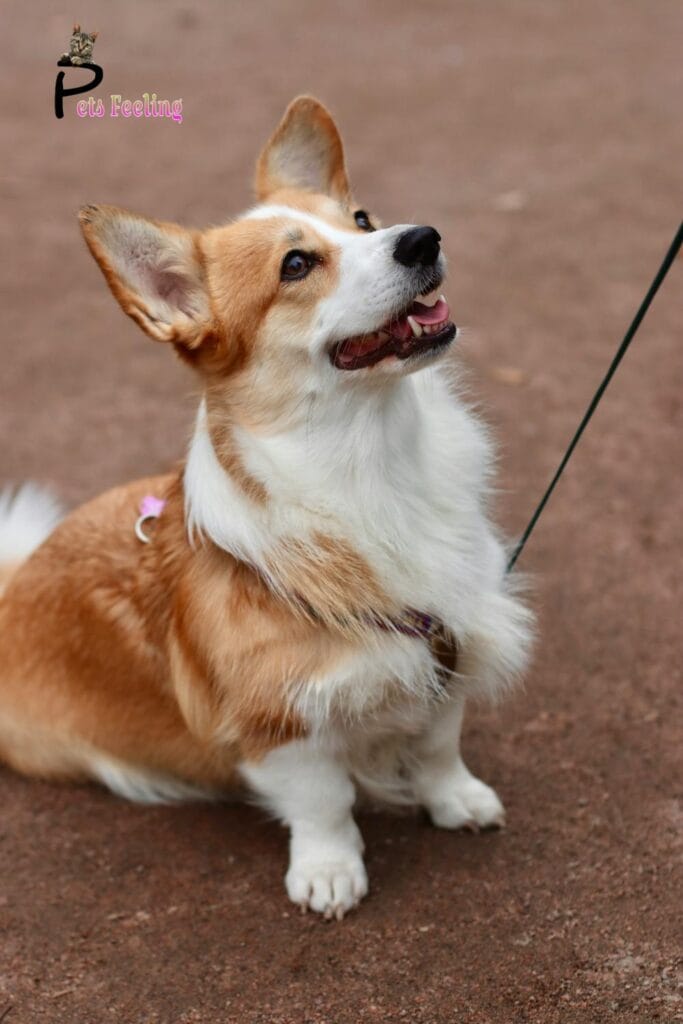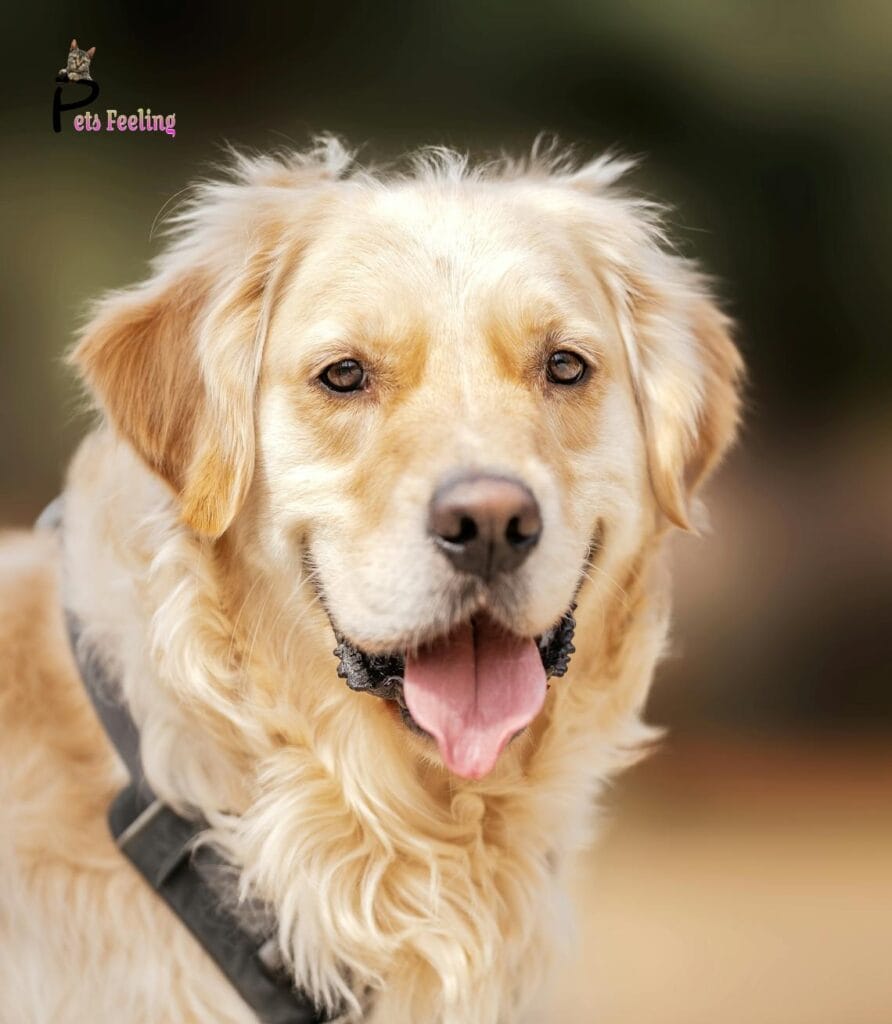Can dogs really feel love, or is it just a trick of evolution? This question is at the center of a fascinating study on dogs’ emotions. Let’s dive into the surprising ways dogs show love, revealing 5 key facts that change how we see their bond with us.
Key Takeaways
- Discover the neurochemical basis for a dog’s ability to form deep emotional connections.
- Explore the evolutionary roots that have shaped the unique human-dog relationship.
- Learn how to recognize the signs of affection and attachment in your canine companion.
- Understand the role of the “love hormone” oxytocin in facilitating bonding and trust.
- Gain insights into the reciprocal nature of dog-human love and how it influences both species.

The Science Behind a Dog’s Capacity for Love
Exploring canine emotional intelligence reveals amazing insights into the dog-human bond. Our furry friends can feel deep affection. This bond is rooted in neurochemistry and evolutionary changes. ( Dogs Feel Love )
Exploring the Neurochemistry of Affection
Dogs’ emotional and social skills come from their brain’s structure. When they bond with humans, their brains release oxytocin, known as the “love hormone.” This hormone helps create strong pet attachment bonds and enhances their emotional intelligence. ( Dogs Feel Love )
Evolutionary Roots of the Human-Dog Bond
The loyalty of dogs and their unconditional love come from their evolution. As canines lived with humans, they learned to understand our emotions. This led to a strong dog-human bond that has lasted for thousands of years.
This bond is built on trust, companionship, and love. Dogs are great at reading our moods and showing affectionate behaviors.
“Dogs are not our whole life, but they make our lives whole.”
dogs feel love: Decoding the Signs of Affection
Many people think dogs can’t feel love like humans do. But research shows dogs are very good at showing love. By paying attention to their behavior, we can learn a lot about their feelings and thoughts. ( Dogs Feel Love )
A wagging tail is a big sign of a dog’s happiness. A fast, full-body wag means they’re excited to see you. But a slow wag can show they’re happy and relaxed. A stiff tail might mean they’re alert or a bit worried.
Eye contact is also important. When a dog looks at you, it makes you both feel closer. This special moment shows they want to be with you.
Dogs also show love by snuggling and leaning on you. They like to be close because they’re social animals. When they curl up next to you or rest their head on your lap, it’s their way of saying they feel safe and happy with you. ( Dogs Feel Love )
But not all dog behavior means they love you. Sometimes, we might think they do because we see human-like actions. Dogs do form strong bonds, but their feelings are different from ours. Understanding their emotions helps us see how they show love in their own special way.
The Power of Oxytocin: The “Love Hormone” in Dogs
Research shows oxytocin, known as the “love hormone,” is key in dogs’ emotional lives and their bond with humans. This hormone helps dogs feel deep attachment and love for their human friends. ( Dogs Feel Love )
How Oxytocin Facilitates Bonding
Oxytocin triggers feelings of trust, empathy, and bonding. When dogs are with their loved ones, their brains release oxytocin. This makes them feel safe, happy, and connected. ( Dogs Feel Love )
This hormone strengthens the bond between dogs and their humans. It allows for a deep, loving connection between them.
Measuring Oxytocin Levels in Dogs
Scientists can measure oxytocin in dogs to understand their emotions and relationships. By studying this hormone, they learn about dogs’ love and loyalty. This helps owners understand their dogs better and build stronger bonds. ( Dogs Feel Love )
| Factors Influencing Oxytocin Levels in Dogs | Impact on Dog-Human Bond |
|---|---|
| Eye contact with humans | Increases oxytocin levels, strengthening emotional connection |
| Physical touch and petting | Triggers oxytocin release, fostering feelings of love and trust |
| Positive interactions and praise | Elevates oxytocin levels, reinforcing the bonds of affection |
| Separation from loved ones | Decreases oxytocin levels, contributing to feelings of distress |

Canine Attachment Theory: Understanding the Depth of Connection
The study of canine attachment theory reveals how deep dogs’ emotional bonds with humans are. It shows that dogs’ attachment styles are similar to those in human relationships. This highlights the strong connection between humans and animals. ( Dogs Feel Love )
Dogs, like humans, form strong emotional bonds with their caregivers. These bonds are based on a need for security, comfort, and love. These needs are key to a dog’s happiness and feeling of belonging. ( Dogs Feel Love )
Dogs, like humans, have different attachment styles. Their early experiences with humans greatly influence these styles. The quality of care they receive shapes their attachment patterns. ( Dogs Feel Love )
- Secure attachment: Dogs with a secure style are confident and seek their owners. They see their owners as a safe base.
- Anxious-ambivalent attachment: These dogs are clingy and upset when away from their owners.
- Avoidant attachment: Dogs with this style seem aloof. They prefer to keep their distance from their owners.
Knowing a dog’s attachment style helps understand their emotional needs. It shows how to improve their bond with their owner. Recognizing these styles helps owners meet their dog’s emotional needs, creating a stronger bond. ( Dogs Feel Love )
| Attachment Style | Behavioral Characteristics | Implications for Human-Dog Relationship |
|---|---|---|
| Secure | Confident, seek proximity, use owner as safe base | Healthy, mutually rewarding bond |
| Anxious-Ambivalent | Clingy, attention-seeking, distressed by separation | May require additional support and reassurance |
| Avoidant | Aloof, prefer distance from owner | May need more time and patience to build trust |
Canine attachment theory helps us understand the emotional depth of the human-dog bond. It teaches us how to nurture these connections. This knowledge strengthens our relationships with our dogs, making them more fulfilling.
The Reciprocal Nature of Dog-Human Love
The bond between dogs and humans is truly remarkable. It’s filled with deep emotional connections. Evolutionary biology helps us see how this bond grew and thrived over time. ( Dogs Feel Love )
At the heart of this bond is a mix of dog and human behaviors. These behaviors deeply affect each other’s emotions. ( Dogs Feel Love )
How Humans Influence a Dog’s Emotional State
Your actions and attitudes greatly impact your dog’s feelings. Things like your voice tone, how you touch them, and consistent care matter a lot. They help your dog feel secure, trusted, and loved. ( Dogs Feel Love )
Studies link the “love hormone” oxytocin in dogs to positive human interactions. Activities like petting or talking to them can release this hormone. This strengthens the bond between you and your dog, making them feel loved and happy.
But, neglect or negative interactions can stress and worry dogs. This weakens the bond between you and your dog. Knowing how your actions affect your dog’s feelings helps build a strong, emotionally smart bond. ( Dogs Feel Love )
| Human Behavior | Impact on Dog’s Emotional State |
|---|---|
| Affectionate petting, attentive communication | Increased oxytocin, feelings of love and contentment |
| Neglect, inconsistent care, negative interactions | Heightened stress and anxiety, undermined bond |
Understanding how your actions affect your dog’s feelings is key. It helps create a emotionally intelligent and rewarding bond.
Surprising Fact #1: Dogs Can Love Multiple Humans
Many think dogs can only bond deeply with one person. But, research shows a surprising truth: dogs can love and show love to many humans. This shows how complex and varied their feelings can be. ( Dogs Feel Love )
Studies on dog-human bonds have found something interesting. Dogs can feel fur baby love and loyal companionship with more than one person. This shows how smart and emotionally connected our furry friends are. ( Dogs Feel Love )
Experts in animal psychology say it’s because of early socialization and positive training. Dogs are naturally social, which helps them form multiple attachments. This lets us see the unconditional love our loyal friends share with us. ( Dogs Feel Love )
Surprising Fact #2: Love Transcends Breed and Size
Dogs can love without limits, no matter their breed or size. A small toy poodle or a big Great Dane can both form deep bonds and show true affection. This shows that love is the same for all dogs. ( Dogs Feel Love )
From Tiny to Giant, All Dogs Can Love
Dogs, from the smallest Chihuahua to the largest Saint Bernard, can all feel love. They show canine affection to their families, no matter their size. Their pet bonding and puppy love go beyond their looks, thanks to a deep dog-human relationship.
Every dog, big or small, is a loyal companion filled with unconditional love. Their reciprocated affection and canine emotions never fade. The pet affection and animal bonding they share with us shows the strong dog-human connection.
So, whether you have a Chiweenie or a Mastiff, know that their unconditional pet love is real. It doesn’t matter their animal psychology or size. The bond they share with us is truly special and goes beyond all limits.
Surprising Fact #3: Dogs Can Grieve the Loss of a Loved One
Many think dogs don’t feel grief, but research shows they do. They feel deep sorrow and mourning when they lose a loved one. This shows how much they value their pet attachment and loyalty in dogs. ( Dogs Feel Love )
When a dog loses a devoted companion, they might act differently. They might eat less, move less, and even search for their lost friend. These actions show how strong the dog-human bond is and the unconditional affection dogs have for their furry friends.
“Dogs are capable of experiencing and expressing profound grief when they lose a close companion, whether human or canine. It’s a testament to the depth of their emotional lives and the strength of the bonds they form.” ( Dogs Feel Love )
Oxytocin, known as the “love hormone,” is key in dog emotions. When a dog loses a loved one, it can show signs of grief. This is because the oxytocin pathway is disrupted. ( Dogs Feel Love )
Dogs’ ability to grieve shows their emotional intelligence and strong pet attachment. It reminds us of the deep dog-human bond and the unconditional affection our devoted pets feel. ( Dogs Feel Love )
Surprising Fact #4: Love Can Blossom at Any Age
Many think that dogs can only show love when they’re young. But, dogs of any age can form deep bonds with their humans. Whether it’s a playful puppy or a wise older dog, they can connect deeply with us. ( Dogs Feel Love )
The bond between dogs and humans is not just about age. It shows the unconditional affection dogs can give. Puppies are full of energy, but older dogs can also show great loyalty in dogs and emotional intelligence in pets.
Research shows that dogs’ social cognition in dogs and pet attachment stay strong as they age. No matter their age, dogs can create strong, lasting bonds. This proves that love can blossom at any age.
“A dog’s love is not measured in years, but in the depth of the bond they share with their human family.”
So, whether you’re holding a playful puppy or showing love to an older dog, remember. The dog-human bond is a timeless symbol of unconditional affection and anthropomorphism. Your furry friend’s love has no limits.
Surprising Fact #5: Love Can Overcome Trauma and Neglect
One of the most heartwarming facts is that love can heal even the deepest wounds. Dogs who have faced trauma and neglect can become loving pets with a second chance. They form strong bonds with their humans.
Heartwarming Stories of Rescued Dogs
Daisy, a Labrador mix, was rescued from an abusive home. After months of care, she changed from fearful to loving. Now, she greets her family with joy, showing the power of the canine-human bond.
Buddy, a timid Pit Bull, was found abandoned and malnourished. With love and training, he became confident and loving. His story shows that even tough dogs can learn to trust and love.
- Affection in dogs can blossom even after trauma and neglect
- Rescued dogs often form the deepest bonds with their new human families
- Patient care and unconditional love can help overcome a dog’s past struggles
- The resilience of the dog-human connection knows no bounds
These stories show how amazing dogs are at showing love and loyalty. Even the toughest dogs can become loving companions with a second chance and a loving home.
Conclusion
The science shows that dogs feel love and show real affection. The brain’s chemistry and evolution explain how deep their feelings are. Knowing how dogs show love can make your bond with them stronger.
The love between humans and dogs is amazing. It shows how smart and feeling our pets are. Whether you have a young puppy or an older dog, seeing their love can make your connection even stronger.
Exploring dog psychology and puppy socialization is exciting. Remember, the love you share with your pet is special. It’s a bond that goes beyond size, age, or breed. Enjoy the love and loyalty your pet brings into your life.

FAQ
Do dogs really feel love?
Yes, dogs can feel and show love and affection. Studies prove they can form strong emotional bonds with people.
How can I tell if my dog loves me?
Look for signs like wagging tails, eye contact, and snuggling. Dogs also release oxytocin, the “love hormone,” when they’re with their favorite people.
Can dogs form strong bonds with multiple people?
Yes, dogs can love more than one person. They show deep emotional connections with several people, proving their love is versatile.
Does a dog’s breed or size affect their ability to love?
No, love isn’t limited by breed or size. All dogs, big or small, can form strong emotional bonds with their humans.
Can dogs grieve the loss of a loved one?
Yes, dogs can mourn the loss of a human or another dog. They show they can feel and express grief, showing their deep love and attachment.
Does a dog’s age affect their ability to love?
No, age doesn’t limit a dog’s love. Puppies and seniors alike can form deep connections and feel love for their humans.
Can rescued dogs learn to love again after experiencing trauma or neglect?
Yes, dogs can love again after tough times. Stories of rescued dogs show their ability to heal and form strong bonds with their caregivers.
IMPORTANT ADDITIONS
Edited on , 12 OCT ,2024
read more articles : https://petsfeeling.com/blog-2/
social media :
facebook : https://www.facebook.com/PetsFeeling0/
tiktok : https://www.tiktok.com/@pets.feeling
instagram : https://www.instagram.com/pets._.feeling/
youtube : https://www.youtube.com/@Pets-Feeling

